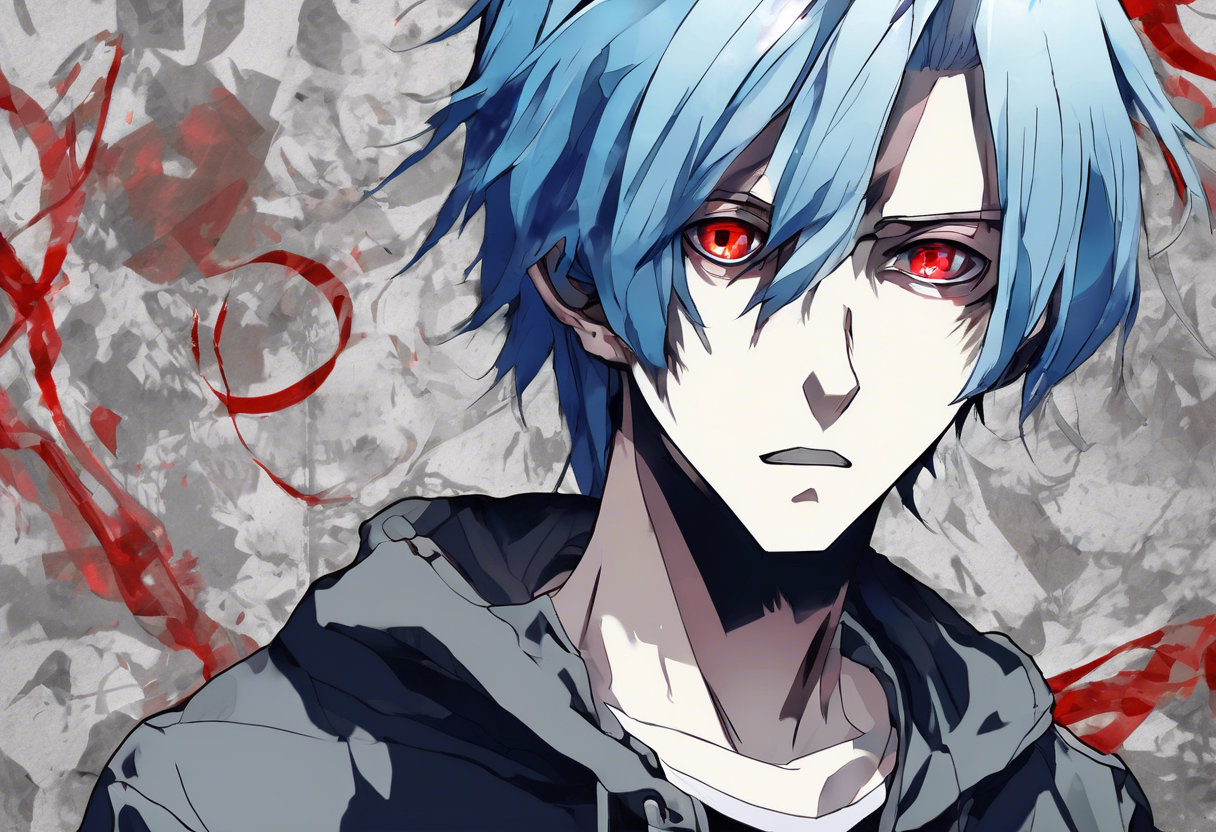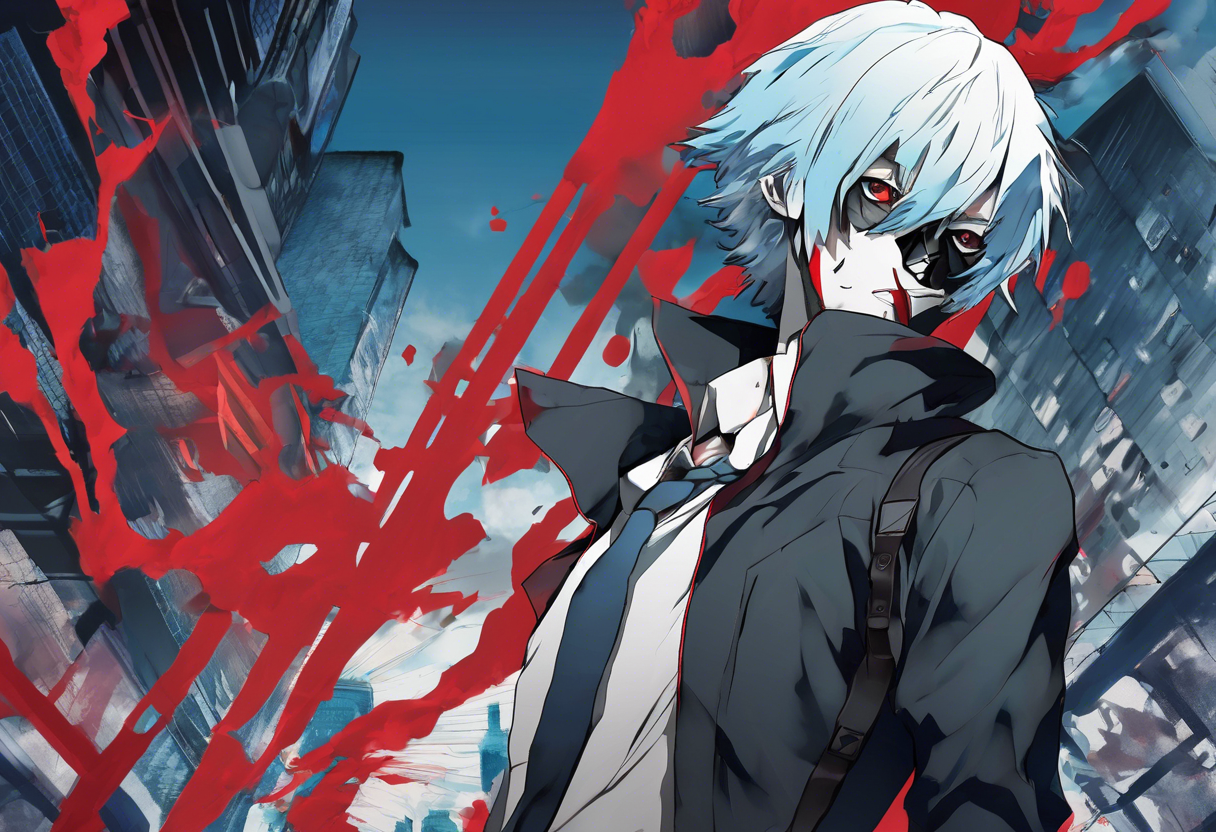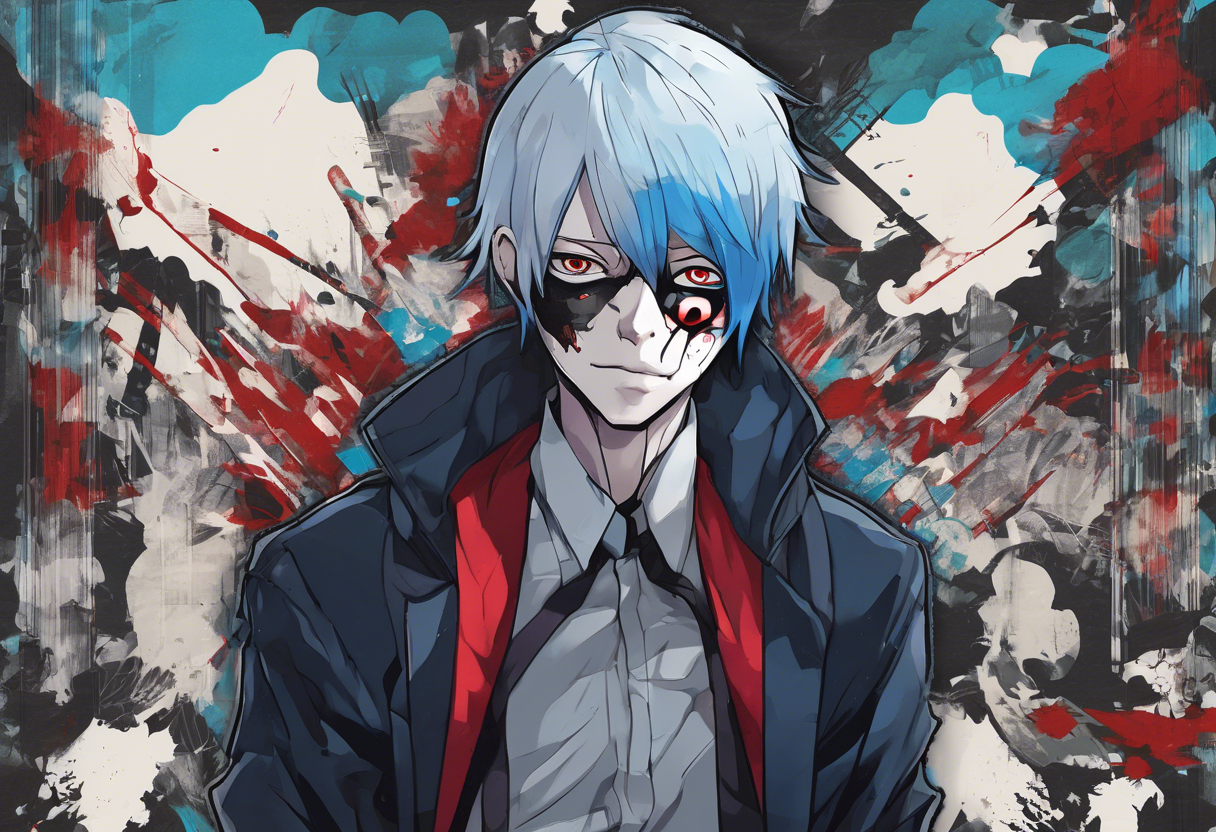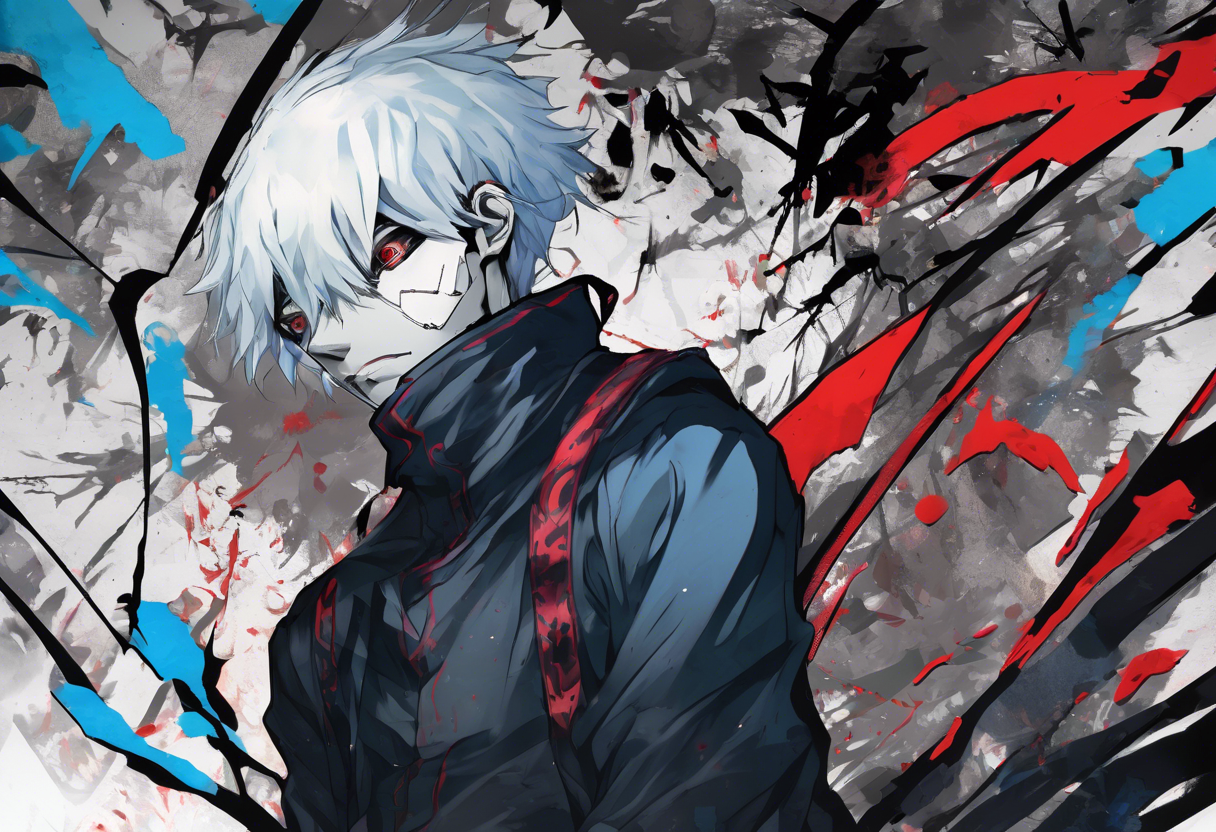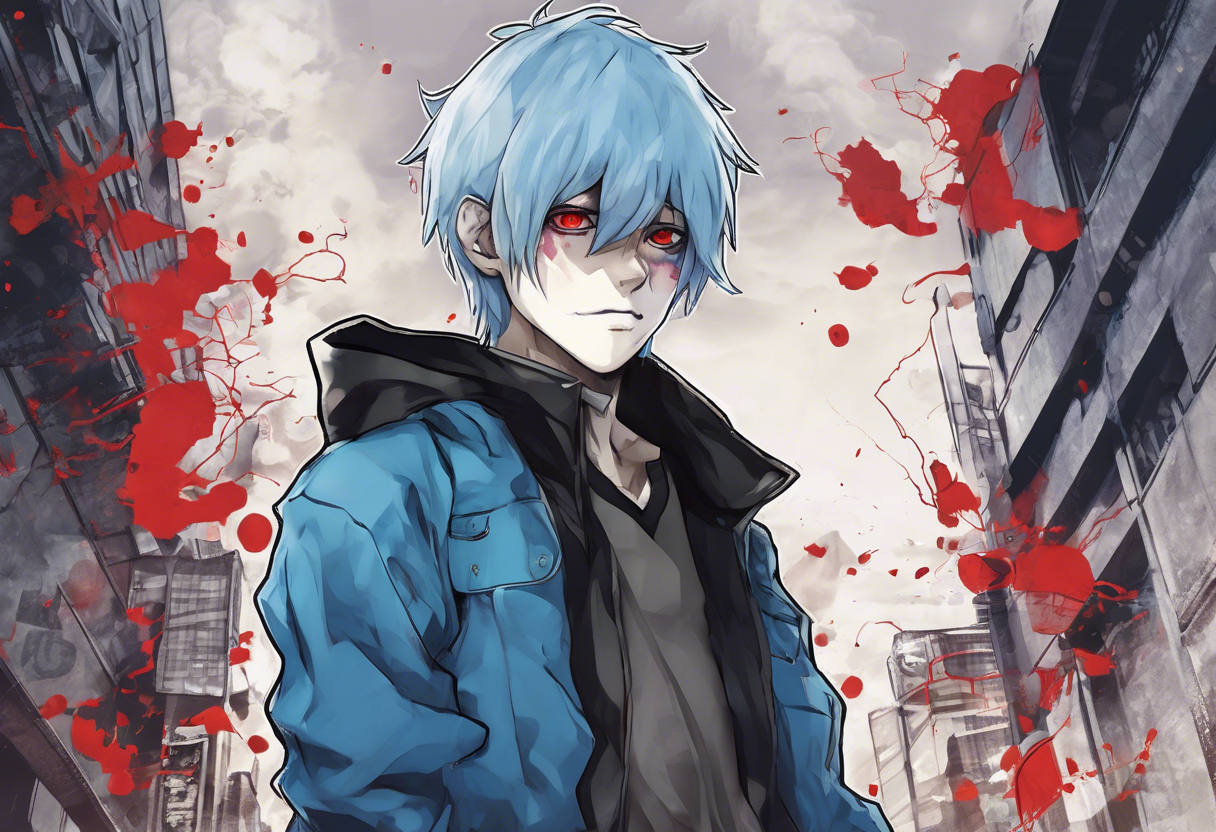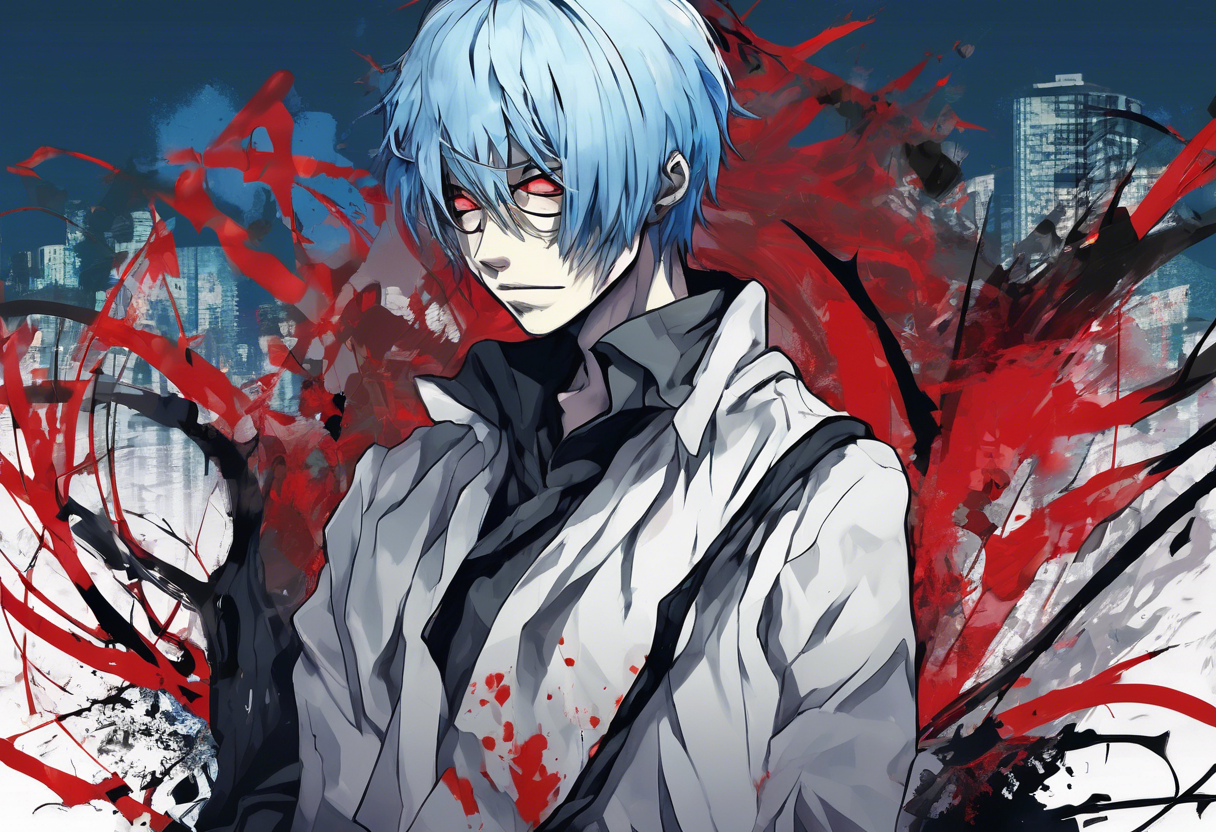Contents
Introduction
Tooru Mutsuki, often mistakenly referred to as "Mitsuki’s Brother," is a significant character in the anime and manga series "Tokyo Ghoul." Created by Sui Ishida, Mutsuki is a Special Class Ghoul Investigator affiliated with the Commission of Counter Ghoul (CCG) and is also a member of the Quinx squad. This character’s complexity and multifaceted nature make them a crucial part of the narrative.
Mutsuki’s background is marked by a unique blend of physical and psychological traits. Born as a female but raised as a male, Mutsuki’s identity is a central theme in their character development [5]. This duality adds depth to their interactions and relationships within the story, particularly in how they navigate the strict and often oppressive world of the CCG.
Mutsuki’s defining attributes include their exceptional combat skills and their role as a Quinx, individuals who have undergone a procedure to implant ghoul organs into their bodies to enhance their abilities. This hybrid status places Mutsuki in a unique position between humans and ghouls, reflecting the series’ broader themes of identity, acceptance, and the blurred lines between these two worlds.
Role in the Story
Mutsuki’s arc in "Tokyo Ghoul" is characterized by significant evolution and pivotal choices. Initially introduced as a member of the Quinx squad, Mutsuki is portrayed as a skilled and dedicated investigator. However, their storyline takes a dark turn upon their capture by the ghoul known as Torso (Karao Saeki), a serial killer with a twisted and violent history [2].
This encounter reveals the disturbing aspects of Mutsuki’s backstory, which were largely skipped in the anime adaptation due to censorship reasons [3]. The manga delves deeper into Mutsuki’s psychological trauma and their adaptation of Torso’s tendencies, highlighting the themes of abuse, identity crisis, and the psychological impact of violence.
Mutsuki’s relationships with other characters, particularly their bond with their superior, Kishou Arima, and their interactions with other Quinx members, are crucial to their narrative. These relationships underscore Mutsuki’s struggle with their identity and their place within the CCG.
Character Analysis
Mutsuki’s personality is a complex interplay of strength and vulnerability. On the surface, they appear as a disciplined and skilled investigator, but beneath this facade lies a deeply troubled individual. Mutsuki’s motivations are driven by a desire to fit into a world that is inherently hostile to their existence. Their strength lies in their resilience and adaptability, while their weaknesses are rooted in their psychological scars and identity conflicts.
The character’s personal growth is marked by a gradual unraveling of their carefully constructed persona. As the series progresses, Mutsuki’s experiences force them to confront their true identity and the traumas they have endured. This journey enhances their depth and audience appeal, making them one of the most compelling and sympathetic characters in the series.
Themes and Symbolism
Mutsuki’s character is deeply intertwined with several key themes in "Tokyo Ghoul." The most prominent of these is the theme of identity, particularly in the context of gender and societal expectations. Mutsuki’s struggle to reconcile their biological sex with their raised gender highlights the rigid norms and the consequences of non-conformity [5].
Another significant theme associated with Mutsuki is the psychological impact of trauma. Their experiences with Torso and the subsequent adaptation of his tendencies serve as a symbol for the lasting effects of abuse and the fragility of the human (or ghoul) psyche.
The series also explores the theme of acceptance and belonging through Mutsuki’s character. Their journey is a metaphor for the search for identity and the need for acceptance in a world that often rejects those who are different.
Cultural Impact
Mutsuki’s character has had a significant cultural impact, particularly among fans of the series. Their complex and deeply human story resonates with audiences, making them a favorite among fans. The character’s appearance in various forms of media, including manga, anime, and merchandise, further underscores their popularity.
Mutsuki’s influence can also be seen in how they have contributed to the broader discourse on gender identity and trauma in anime. Their character has inspired discussions and reflections on these themes, both within the fan community and in academic circles.
Critical Reception
Critics and viewers have responded to Mutsuki’s character with a mix of acclaim and criticism. Many praise the depth and complexity of their storyline, highlighting the series’ bold approach to sensitive topics such as gender identity and psychological trauma.
However, some critics have noted that the anime adaptation did not fully explore Mutsuki’s backstory, which was a point of contention among fans who felt that this omission diminished the character’s impact [3].
Despite these criticisms, Mutsuki remains one of the most compelling and well-received characters in the series, with many interpreting their significance as a reflection of the series’ broader themes of identity, trauma, and acceptance.
Legacy
Mutsuki’s lasting influence on the anime genre is substantial. Their character has contributed to the evolution of complex, multidimensional characters in anime, particularly those dealing with themes of identity and trauma.
Mutsuki’s role in shaping anime discourse is evident in how their story has inspired other creators to tackle similar themes. Their character serves as a benchmark for how anime can address sensitive topics with depth and sensitivity.
In conclusion, Tooru Mutsuki is a pivotal character in "Tokyo Ghoul," whose complex narrative and deep psychological insights make them a compelling and memorable figure. Their impact on the series and the broader anime genre is undeniable, cementing their place as one of the most significant characters in recent anime history.

